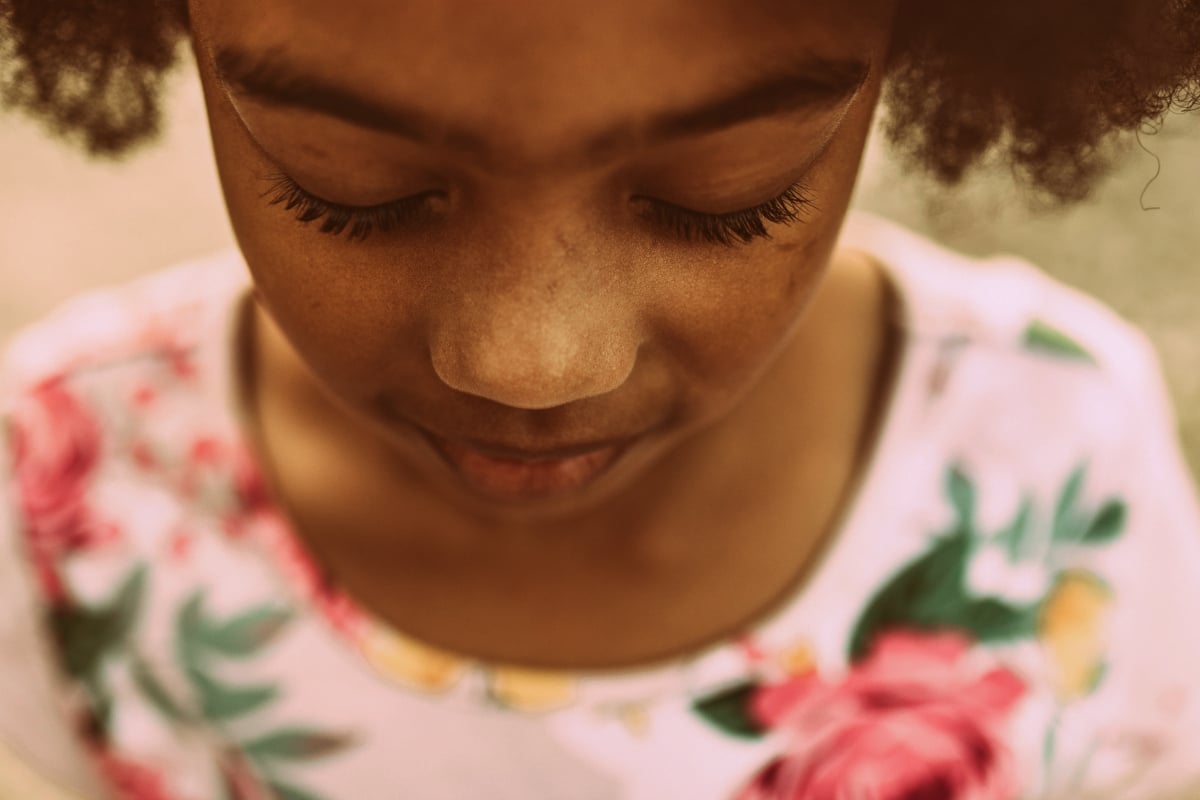
This post deals with family violence, and might be triggering for some readers.
At my grandmother’s, I played with a tin dollhouse, painted cream with green shutters and roof, the chimney planted dead centre on the peak. It was a two-story model. Downstairs a living room, kitchen, and pantry.
Upstairs, a bedroom opened onto a cobblestone patio. I rearranged the furniture according to my shifting moods but always positioned the bed under a window, headboard facing the verandah. I longed to shrink into that tin house, curl up on the plastic comforter, in front of windows that did not shatter.
WATCH: Women and violence: the hidden numbers. Post continues below.
I bent over my bed, packing for a weekend meditation retreat. Clothes were strewn on top of the covers, a suitcase open amid the clutter. My mind wandered.
From the anticipation of pulling into the retreat centre driveway toward the verandah that overlooked well-tended gardens… to a hope that the cook had improved his vegetarian fare… to the taste of veggie burritos my sister Leslie had once fixed for me, adding so many jalapenos I had begged for antacid.
